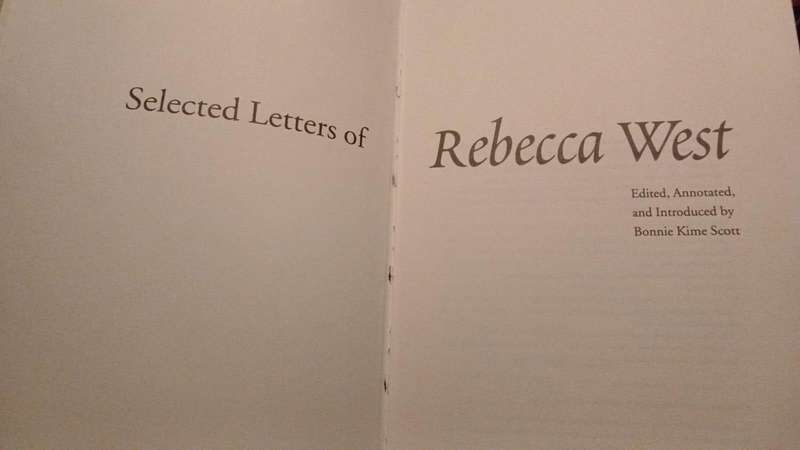
Selected Letters of Rebecca West (Yale University Press)
Check my rate
| Main centres: | 1-3 business days |
| Regional areas: | 3-4 business days |
| Remote areas: | 3-5 business days |

| Main centres: | 1-3 business days |
| Regional areas: | 3-4 business days |
| Remote areas: | 3-5 business days |
Published by Yale University Press, 2000, hardcover, illustrated, index, bibliography, 500 pages, no dust jacket otherwise condition: basically as new.
From the time that George Bernard Shaw remarked that "Rebecca West could handle a pen as brilliantly as ever I could and much more savagely," West's writings and her politics have elicited strong reactions. This collection of her lettersthe first ever publishedhas been culled from the estimated ten thousand she wrote during her long life. The more than two hundred selected letters follow this spirited author, critic, and journalist from her first feminist campaign for woman suffrage when she was a teenager through her reassessments of the twentieth century written in 1982, in her ninetieth year.
The letters, which are presented in full, include correspondence with West's famous lover H. G. Wells and with Shaw, Virginia Woolf, Emma Goldman, Noël Coward, any many others; offer pronouncements on such contemporary authors as Norman Mailer, Nadine Gordimer, and Arthur Schlesinger, Jr.; and provide new insights into her battles against misogyny, fascism, and communism. West deliberately fashions her own biography through this intensely personal correspondence challenging rival accounts of her groundbreaking professional career, her frustratinglove life, and her tormented family relations. Engrossing to read, the collection sheds new light on this important figure and her social and literary milieu.
Dame Rebecca West, DBE was an English author, journalist, literary critic, and travel writer. A prolific, protean author who wrote in many genres, West was committed to feminist and liberal principles and was one of the foremost public intellectuals of the twentieth century. She reviewed books for The Times, the New York Herald Tribune, the Sunday Telegraph, and the New Republic, and she was a correspondent for The Bookman. Her major works include Black Lamb and Grey Falcon (1941), on the history and culture of Yugoslavia; A Train of Powder (1955), her coverage of the Nuremberg trials, published originally in The New Yorker; The Meaning of Treason, later The New Meaning of Treason, a study of World War II and Communist traitors; The Return of the Soldier, a modernist World War I novel; and the "Aubrey trilogy" of autobiographical novels, The Fountain Overflows, This Real Night, and Cousin Rosamund. Time called her "indisputably the world's number one woman writer" in 1947.